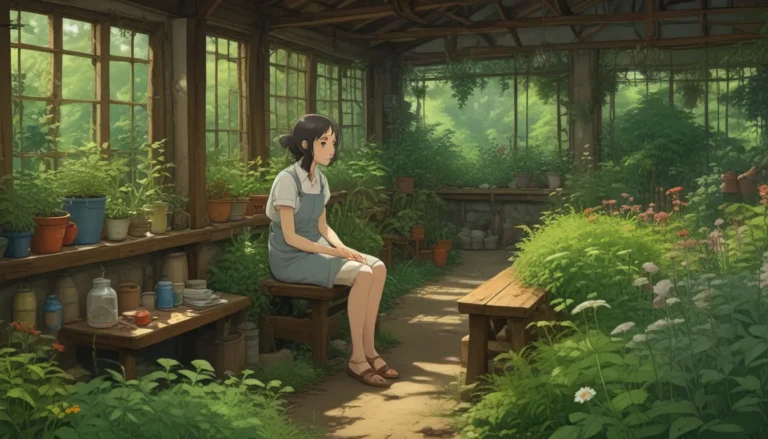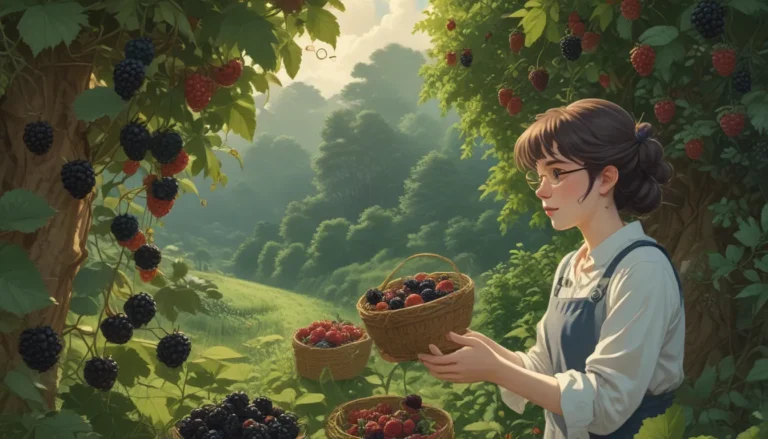Exploring Garden Folklore: A Comprehensive Review of Popular Garden Myths

Gardening folklore and myths have been passed down through generations, offering a mix of truths, half-truths, and outright fabrications. While some myths may seem far-fetched, others contain valuable insights for the modern gardener. Let’s dive in and explore the fascinating world of garden folklore!
Separating Fact from Fiction in Garden Myths
Garden myths come in all shapes and sizes, but not all of them hold water. Let’s debunk some popular myths that have been floating around the gardening community:
-
Adding sugar to soil will make tomatoes sweeter: Unfortunately, this myth doesn’t hold true. The sweetness of tomatoes depends on the variety you choose, not on the sugar content of the soil.
-
Cutting an earthworm in half will create two worms: This common belief is false. While earthworms can regenerate after being cut, the process is harmful and should be avoided.
-
Planting potatoes on Good Friday: While this tradition may have historical roots, the date of Good Friday changes each year, making it an impractical guideline for planting.
-
Planting multiple crops of parsley for superstitious reasons: Parsley seeds can be challenging to grow, but there’s no need to plant extra crops for mythical reasons.
-
Avoiding watering plant foliage on hot days: Contrary to popular belief, watering plant foliage on hot days is not harmful. The real concern is cold water on hot leaves, which can lead to damage.
Uncovering the Truth Behind Green-Thumbed Legends
Some garden myths contain a grain of truth that requires further clarification. Let’s take a closer look at these popular beliefs:
-
Testing soil temperature with a bare bottom: While sitting on warm soil may indicate suitable planting conditions, modern tools like soil thermometers provide a more accurate measurement.
-
Repelling flies with pennies and deer with compact discs: While these tactics may seem unconventional, many gardeners swear by them. While there’s no scientific consensus, anecdotal evidence supports their effectiveness.
-
Talking to plants for better growth: While it may sound silly, some studies suggest that plants respond positively to vibrations, including human voices. While the mechanism isn’t fully understood, talking to plants can have a calming effect on gardeners.
-
Using beer traps for slug control: Beer traps can attract slugs, but their effectiveness depends on the trap’s design. Monitoring and emptying the traps regularly is crucial for success.
-
Planting marigolds to repel pests: Marigolds can deter some garden pests, but success requires planting a significant number of plants. Consider the trade-offs of dedicating space to marigolds versus other crops.
Embracing Garden Folklore That Delivers Results
Certain garden myths have stood the test of time, offering practical benefits to gardeners. Let’s explore some folklore that has proven to be effective:
-
Using eggshells and banana peels as plant nutrients: These kitchen scraps contain valuable nutrients that can benefit garden soil. Incorporating them into compost or directly into the garden can enrich the soil and support plant growth.
-
Creating a rooting tea with willow cuttings: Willow branches contain growth-promoting hormones that can aid in rooting plant cuttings. This natural alternative to rooting hormone is simple to prepare and effective for propagating new plants.
-
Amending soil with coffee grounds for acid-loving plants: Coffee grounds are rich in nitrogen and slightly acidic, making them ideal for plants like azaleas. Mixing them with other organic matter can provide a nutrient boost to the soil.
-
Burying rusty metal objects for soil enrichment: Rusty metal objects can release iron into the soil, benefiting plants that require this nutrient. While the method may seem unconventional, it can help improve soil acidity and plant health.
Embracing the Diversity of Garden Folklore
Garden folklore is a rich tapestry of traditions, superstitions, and practical wisdom passed down through generations. While some myths may seem outlandish, others contain valuable insights that can enhance your gardening experience. By exploring the world of garden folklore, we gain a deeper appreciation for the intricate relationship between humans and plants.
What are some of your favorite garden myths or anecdotes? Share them in the comments below and let’s continue to unravel the mysteries of gardening together!
For more captivating tales from the world of plant folklore, check out these intriguing guides:
- Plant Folklore: Myths, Magic, and Superstition
- Parsley, Sage, Rosemary, and Thyme: a Love Story
- Green Flowers: From Beautiful to Bizarre
Remember, when it comes to gardening, a bit of folklore can add a touch of magic to your green space. So, embrace the myths, explore the legends, and let your garden thrive with a sprinkle of whimsy and wonder!





